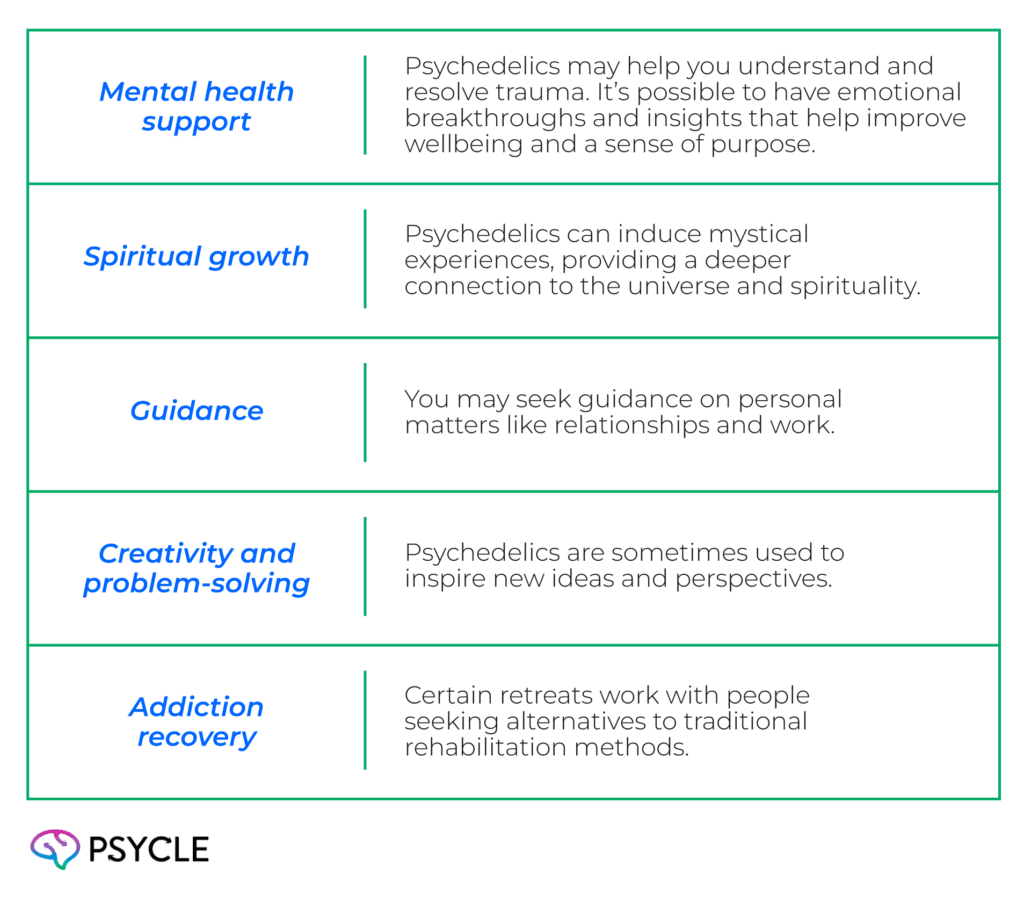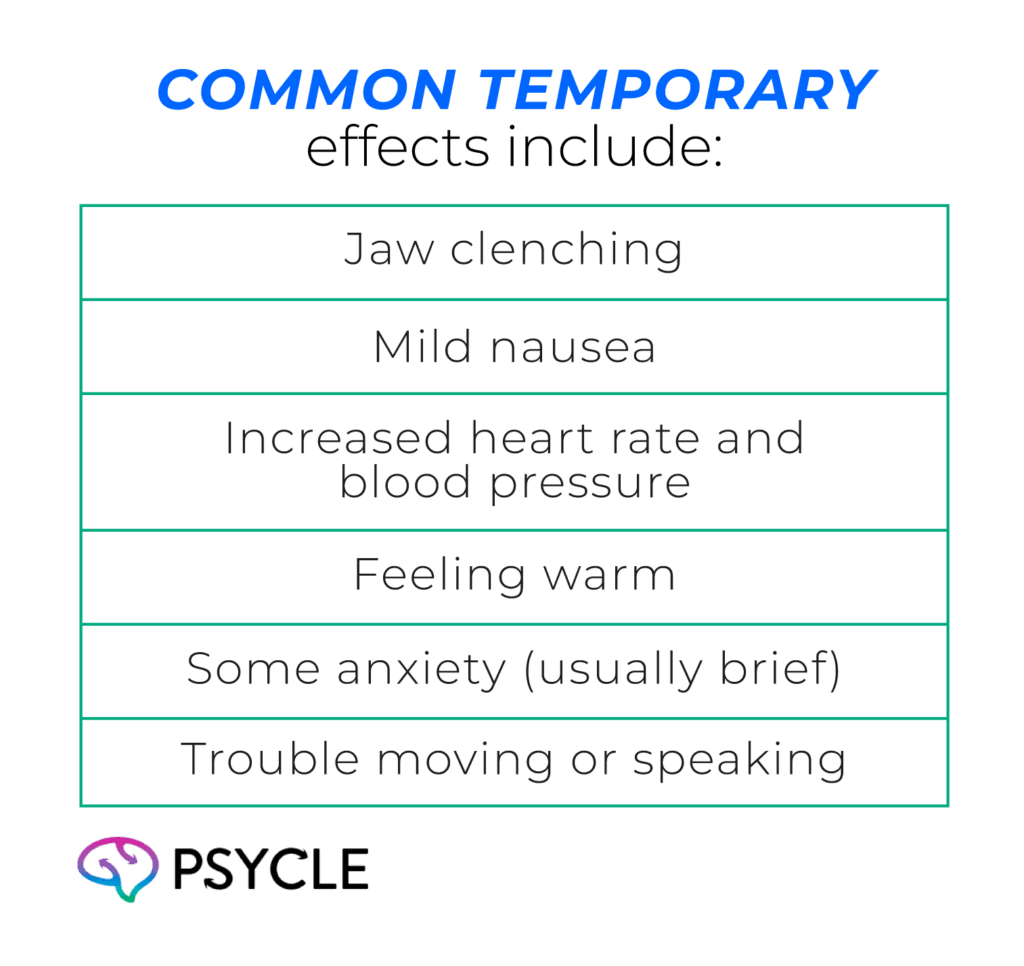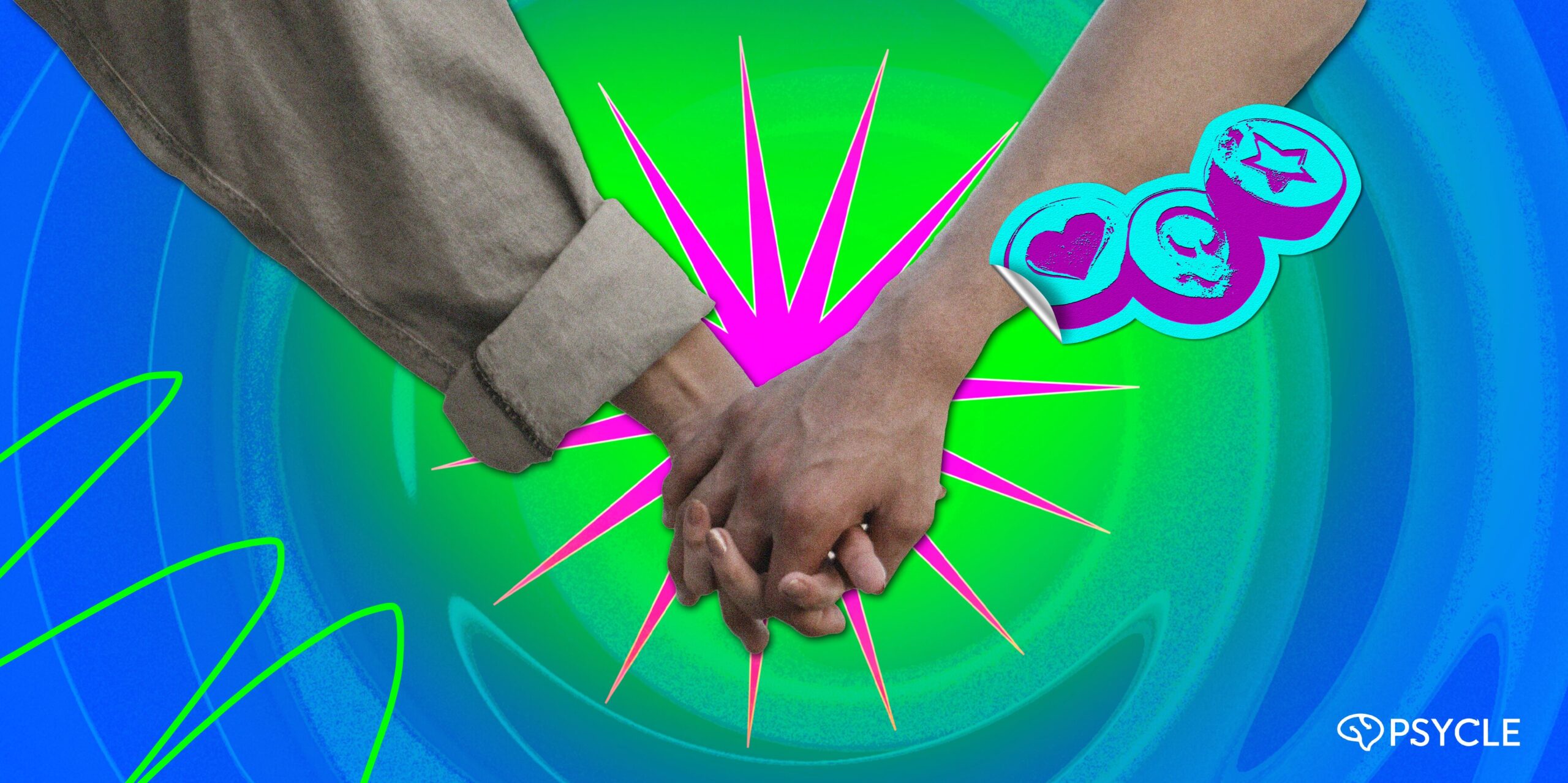MDMA, formerly known most widely as a party drug, is now being carefully studied as a breakthrough tool for couples who feel stuck. Research widely indicates that, in the right therapeutic setting, MDMA can help partners open up to one another, find the words to share their true feelings, and heal relationship rifts in ways that months of traditional therapy sometimes can’t achieve.
This article explores how MDMA can pave a pathway for deeper connection, what it might do for your relationship, and what couples therapy with MDMA actually looks like.
Key Takeaways
- MDMA-assisted couples therapy creates a temporary state of emotional openness and lowered defenses, allowing partners to address deep issues like betrayal or disconnection in ways traditional therapy often cannot, by boosting serotonin, oxytocin, and reducing fear-based responses.
- Early research shows promising results for MDMA in improving emotional intimacy, empathy, and conflict resolution within relationships, though it requires structured therapy before and after sessions to support lasting change and avoid retraumatization.
- While clinical MDMA is safe in controlled environments, it remains illegal outside of research trials, and experts caution against unregulated use; future access depends on further studies and eventual regulatory approval.
From Underground to Clinical Research: MDMA’s Journey
MDMA was first created in 1912, but it remained unused for decades. In the 1970s, some therapists began quietly using it with clients, amazed at how it helped people open up emotionally. But when MDMA exploded in dance clubs during the 1980s, governments cracked down and made it illegal, shutting down all research for years.
Fast forward to the early 2000s: scientists started studying psychedelic medicines again, this time with rigorous clinical trials. The most significant breakthroughs came with PTSD treatment. A 2021 study showed dramatic improvements in people who’d struggled with trauma for years.
Researchers have also been asking whether, if MDMA helps individuals heal trauma, the same substance could help couples heal relationship wounds, too.

What MDMA Does to Your Brain (and Heart)
MDMA floods your brain with feel-good chemicals, especially serotonin, and triggers the release of oxytocin, often called the “cuddle hormone.” At the same time, it quiets down your amygdala, the part of your brain that sounds alarm bells when you feel threatened.
What This Means for Couples
MDMA therapy is notable for helping couples become able to talk about painful topics, like betrayal, disappointment, and fear. It can offer them a unique window in which to have reparative conversations, without following usual patterns that, if they continue, can spell the end of a relationship, including becoming defensive or shutting down.
MDMA appears to create a safe space where partners can be vulnerable without triggering the typical fight-or-flight response. You might finally hear what your partner is really saying, and they might finally feel what you’ve been trying to express.
The drug also appears to make emotional memories more flexible, so old hurts don’t feel quite as fixed or permanent. And in the days and weeks after a session, your brain enters a more “plastic” state, more receptive to forming new patterns and connections.
Relationship Repair: What Couples Are Experiencing
The strongest evidence for MDMA’s therapeutic potential so far comes from looking into its use in trauma treatment. In 2021, a major study found that 67% of people with severe PTSD no longer qualified for the diagnosis after MDMA therapy due to their improved mental health, compared to just 32% in the control group.
Research Into MDMA Within Relationships
The research on couples and shared therapeutic experiences is relatively new and small, but the early signs are exciting. A 2024 pilot study combined MDMA with couples therapy and found improvements not just in trauma symptoms, but in relationship quality too. An earlier study with six couples reported breakthroughs in:
- Emotional intimacy. Partners felt closer and more emotionally in tune with each other
- Empathy and understanding. Finally seeing things from one another’s perspective
- Conflict resolution. Arguments with repeat patterns took new, healthier pathways
- Forgiveness. Old resentments shifted.
Therapists describe MDMA as a “relationship accelerator,” helping couples reach emotional breakthroughs in hours that might otherwise take months.
One couple might finally discuss the affair that has been creating distance. Another might express fears they’ve held back for years. A third might rediscover the affection that got buried under years of stress and routine.
The Reality Check: Ongoing Work Is Needed
MDMA therapy for couples can lead to healthier relationships. Recognizing that you’ll need to work together to unlock the opportunities that come with it is crucial for all couples considering this pathway.
The real work happens in the weeks and months after, when you’re back in the situations and headspaces that make up your regular life together. That’s why it is so essential to combine the transformative potentials of MDMA couples therapy with regular therapy sessions before and after.
What a Session Actually Looks Like
MDMA couples therapy is a carefully structured experience that will involve several different appointments.
Before the journey: You’ll have preparatory sessions with your therapist to set intentions, discuss what you hope to work on, and establish emotional boundaries.
During the experience, you and your partner take a controlled dose in a calm, private therapeutic space. Two trained therapists stay with you the entire time (usually 6-8 hours), monitoring your well-being and gently guiding conversations. They’re there to keep you safe and help you navigate whatever comes up—but they’re not directing the experience.
The setting is crucial, as it provides a protected environment designed specifically for emotional safety and healing.
After the session: Integration appointments with the therapist(s) can help you make sense of what emerged, translate insights into daily life, and build new relationship patterns that can last.
Is MDMA Couples Therapy Safe?
In controlled therapeutic settings with medical screening and supervision, MDMA is generally well-tolerated.
Common temporary effects include:

Most side effects of medical-grade, therapeutically administered MDMA are mild and pass quickly. Serious medical events are rare in clinical trials.
Important cautions if you’re considering MDMA couples therapy:
- MDMA isn’t appropriate for everyone. Certain medical conditions, medications, or mental health histories rule it out.
- Repeated high doses or street drugs carry higher risks.
- Some people feel emotionally drained for a few days afterward.
- We’re still learning about the long-term effects of taking MDMA.
Relational safety matters too. If your relationship involves ongoing abuse, severe power imbalances, or coercive control, MDMA therapy could potentially make things worse rather than better. Ethical therapists screen carefully for these dynamics.
Trying MDMA Couples Therapy for Yourself
The short answer to whether you and your partner can go for MDMA couples therapy right now is: probably not yet.
MDMA is still illegal in most countries outside of approved research studies. While the FDA designated MDMA therapy as a “breakthrough” treatment for PTSD, in 2024, an advisory panel voted against approval, citing concerns that require more research to address.
Unless you qualify for a clinical trial, legal access isn’t available yet. You can check ClinicalTrials.gov for current studies recruiting couples.
Avoid underground “retreats” or unregulated offerings. These carry serious legal and safety risks, with no medical oversight or quality control.
MDMA Couples Therapy: Looking Ahead
If regulatory approval eventually comes through, MDMA couples therapy could become available through trained therapists. Programs are already in development to certify licensed therapists and clinicians in these methods.
Future versions might combine MDMA with established couples therapy approaches like Emotionally Focused Therapy or Imago Relationship Therapy to maximize lasting change.
Researchers are also exploring questions like: Could lower doses work? What’s the optimal timing between sessions? Can we identify biomarkers to personalize treatment?
Suppose this works the way early evidence suggests. In that case, we might be looking at a fundamental shift in how relationships heal, not just through talking, but through carefully guided experiences that rewire our emotional responses to each other.
MDMA Couples Therapy: What You Do Afterward Matters
MDMA couples therapy offers something genuinely different: a way to temporarily lower emotional barriers so partners can reconnect at a deeper level. The experience can catalyze therapeutic breakthroughs in understanding, empathy, and intimacy that feel difficult or impossible to reach otherwise.
But it’s not a magic bullet. The drug creates opportunity. What you do with that opportunity, both during the session and afterward, determines whether change lasts.
For couples feeling genuinely stuck, carrying old wounds, or struggling to break destructive patterns, MDMA-assisted therapy might eventually offer a powerful new option. For now, more research and regulatory decisions are needed to determine whether and how MDMA couples therapy becomes available.
FAQs
What Exactly Happens During MDMA Couples Therapy?
You and your partner take a controlled dose of pure MDMA in a comfortable therapeutic space. Two therapists stay with you for several hours, creating safety while you explore difficult emotions, express vulnerability, and work through relationship challenges with lowered defenses and heightened empathy.
How is Medical MDMA Different from Street Drugs?
Clinical MDMA is precisely dosed, laboratory-tested for purity, and completely free of the dangerous additives often found in street ecstasy or molly. The setting and therapeutic support are also entirely different from recreational use.
Will One Session Fix Our Relationship?
No. Think of it as creating a breakthrough moment that you can turn to your advantage. Whether the relationship heals as a result will depend on the work you do together afterward: continued therapy, new communication patterns, and daily choices to stay connected.
When Will MDMA Therapy Be Available to Regular Couples?
That’s uncertain. Regulatory approval was delayed in 2024, and more research may be needed.²⁷ It could be years before it’s available outside clinical trials.
Sources
- https://www.frontiersin.org/journals/psychology/articles/10.3389/fpsyg.2021.733456/full
- https://pubmed.ncbi.nlm.nih.gov/33972795/
- https://www.nature.com/articles/s41591-023-02565-4
- https://psychiatryonline.org/doi/10.1176/appi.focus.20220088
- https://akjournals.com/view/journals/2054/8/2/article-p274.xml
- https://www.cambridge.org/core/journals/cns-spectrums/article/mdmaassisted-therapy-challenges-clinical-trials-and-the-future-of-mdma-in-treating-behavioral-disorders/6CDEA4B298F1958CEAEEEA384B0145D1
- https://www.nature.com/articles/s41386-024-01865-8
- https://www.psychiatrist.com/news/legalizing-mdma-for-ptsd-treatment-phase-3-clinical-trial-results/
- https://www.youtube.com/watch?v=W3qdjrqK7hc

